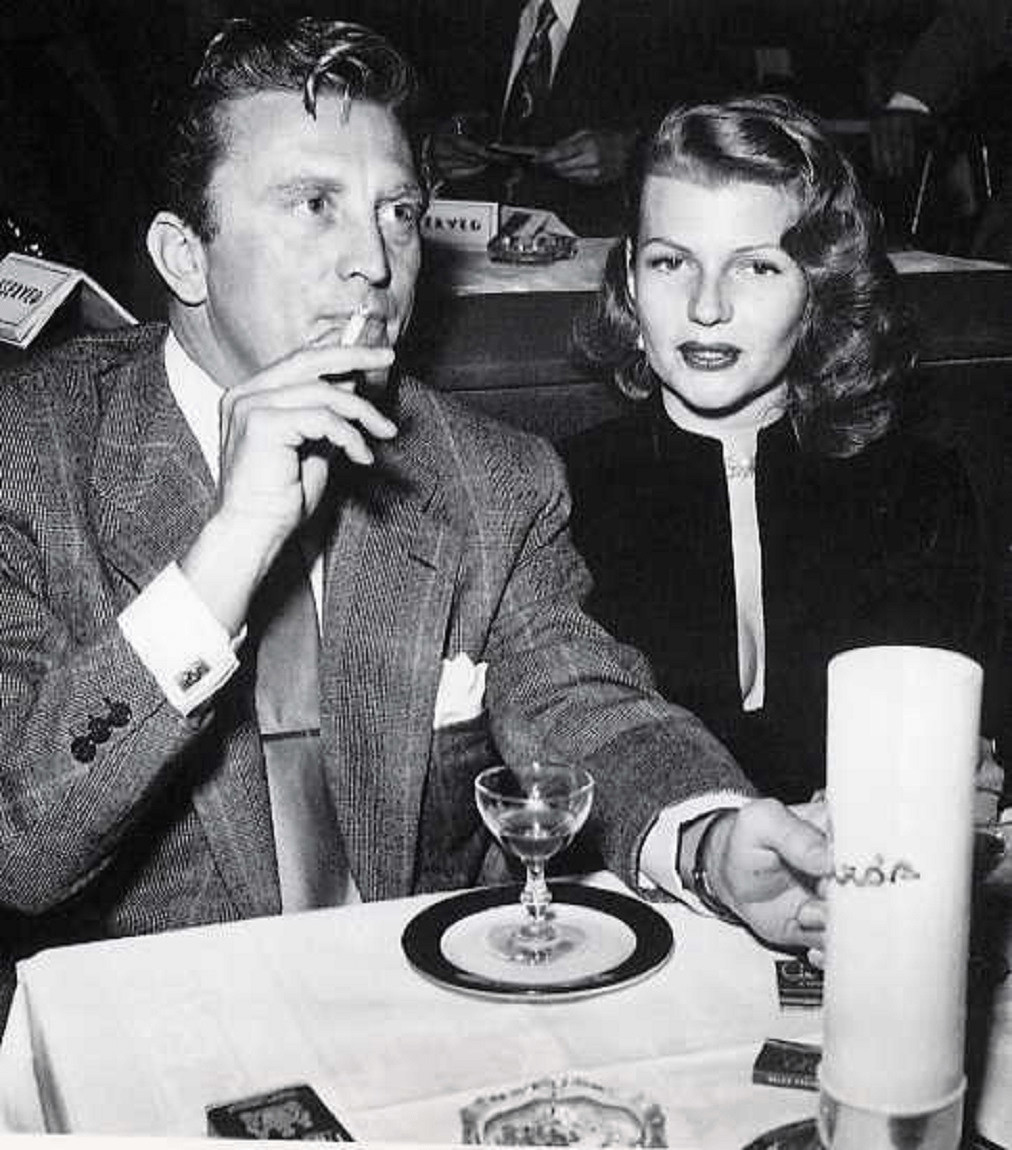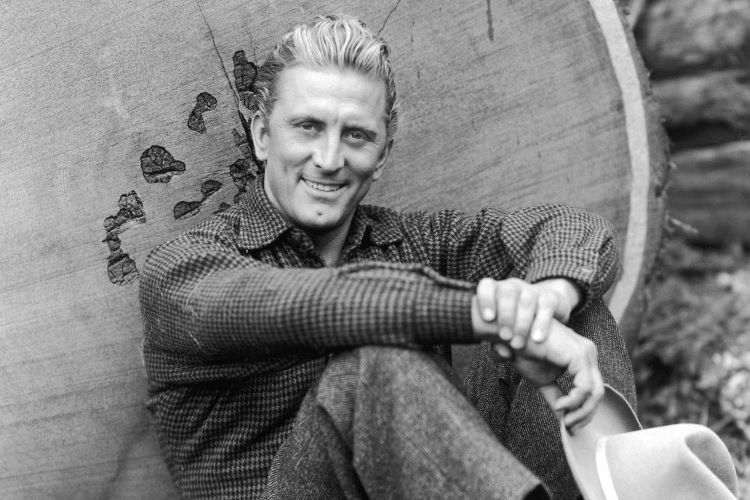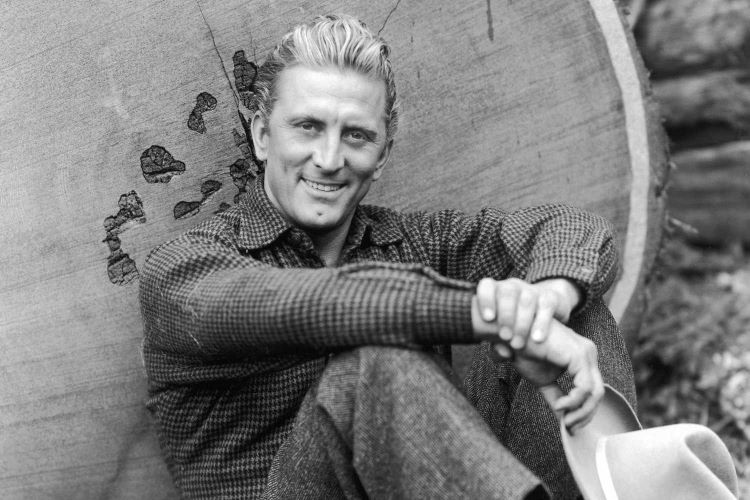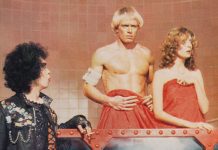The Enduring Legacy of Kirk Douglas: A Hollywood Icon
Born Issur Danielovitch on December 9, 1916, in Amsterdam, New York, Kirk Douglas is remembered as one of the most iconic actors in the history of cinema. His career, which spanned over six decades, not only showcased his exceptional talent but also reflected the profound changes in Hollywood during the 20th century. Known for his rugged good looks, distinctive dimpled chin, and commanding screen presence, Douglas became a symbol of the golden age of Hollywood. However, his journey from humble beginnings to superstardom was anything but straightforward.

Douglas was born into a family of impoverished Jewish immigrants from Belarus. His early life was marked by the struggles of his parents, who worked tirelessly to provide a better future for their family. Growing up in a difficult economic environment instilled in Douglas a strong work ethic. He took on various odd jobs from a young age, including working as a dishwasher and a janitor, all while harboring dreams of becoming an actor. His fortunes changed when he won a scholarship to the American Academy of Dramatic Arts in New York City, where his talent began to flourish, setting the foundation for an extraordinary career.

A Star is Born: The Rise of Kirk Douglas
In 1941, Douglas made his Broadway debut, captivating audiences with his performance. However, his burgeoning career faced a significant interruption when he enlisted in the U.S. Navy during World War II. Serving as a communications officer in anti-submarine warfare, Douglas’s military service not only shaped his character but also provided him with a unique perspective that would later inform his acting. Following the war, he returned to New York, determined to continue his pursuit of acting.

His breakthrough film role came in 1946 with The Strange Love of Martha Ivers, thanks to a recommendation from actress Lauren Bacall. This marked the beginning of a prolific film career that saw him quickly rise to prominence. Throughout the 1950s, Douglas earned a reputation as a versatile actor, capable of portraying both tough-guy roles and deeply complex characters. His landmark performance in the 1949 film Champion as a ruthless boxer earned him his first Academy Award nomination for Best Actor, establishing him as a leading man in Hollywood.
Iconic Performances and Cultural Impact
The 1950s and 1960s solidified Douglas’s status as a Hollywood heavyweight. His portrayal of Vincent van Gogh in Lust for Life (1956) not only earned him another Oscar nomination but also showcased his ability to deliver profound emotional depth. Douglas’s filmography from this era is filled with classics, including 20,000 Leagues Under the Sea (1954), where he played the adventurous Ned Land, and Paths of Glory (1957), a powerful anti-war film directed by Stanley Kubrick. However, perhaps his most renowned role came in the epic film Spartacus (1960), where he portrayed a slave leading a revolt against the Roman Empire. This film was not only a commercial success but also played a pivotal role in ending the Hollywood blacklist by employing blacklisted screenwriter Dalton Trumbo.
Beyond his acting prowess, Douglas was also a talented producer who sought creative control over his projects. His dual role in Spartacus as both star and producer exemplified his willingness to take risks for artistic integrity. This decision not only solidified his status as a formidable force in Hollywood but also paved the way for future creative endeavors in the industry.
The Man Behind the Legend
While Douglas’s on-screen career flourished, his personal life drew considerable media attention. Often labeled a Casanova, Douglas was romantically linked to numerous actresses, including Marlene Dietrich, Joan Crawford, and Rita Hayworth. His charm and virility contributed to this playboy image, making him a captivating figure both on and off the screen. Douglas’s first marriage to Diana Dill in 1943 resulted in two sons, Michael and Joel, but ended in divorce in 1951 amid ongoing rumors of his infidelities.
Despite his tumultuous personal life, Douglas eventually found enduring love with Anne Buydens, whom he married in 1954. Their relationship, which lasted until his death in 2020, defied Hollywood norms and served as a stabilizing force for Douglas. While he openly acknowledged his past infidelities in his autobiography, he credited Anne with bringing him peace and helping him navigate the complexities of fame.
A Lasting Influence and Legacy
As the years progressed, Kirk Douglas transitioned from a leading man to a respected elder statesman of Hollywood. He continued to act into the 1980s and 1990s, often taking on supporting roles and appearing in television films. Despite suffering a stroke in 1991 that affected his speech, Douglas remained active in the industry, demonstrating an unparalleled commitment to his craft and his audience.
Douglas’s influence on Hollywood transcends his acting career; he is also celebrated for his advocacy against the Hollywood blacklist and for greater creative freedom for artists in the industry. His numerous accolades, including an Honorary Academy Award in 1996 for his contributions to cinema, reflect his significant impact on the motion picture community.
A philanthropist at heart, Douglas donated millions to various charitable causes, particularly in education and health. His bestselling autobiography, The Ragman’s Son, offers an intimate glimpse into his life, including his struggles and triumphs. Kirk Douglas’s legacy is marked by his contribution to cinema, his portrayal of complex characters, and his influence behind the scenes, shaping the landscape of film for generations to come.
His passing in 2020 at the age of 103 marked not only the end of a remarkable life but also the closing chapter of an era in Hollywood. Kirk Douglas remains a towering figure whose contributions continue to resonate in the film industry, inspiring countless actors and filmmakers to follow in his footsteps.
















